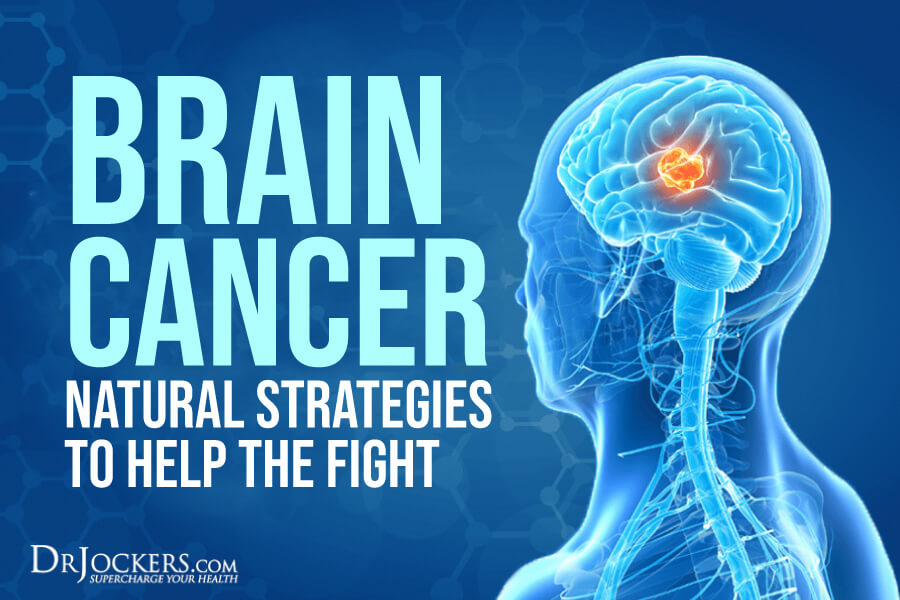 Brain Cancer: Natural Strategies to Help the Fight
Brain Cancer: Natural Strategies to Help the Fight
Brain cancer is one of the fastest growing cancers and it can be detrimental. The brain is the most complex organ in the body. It controls, coordinates, and regulates most of our bodily functions, including our ability to speak, move, think, learn, and feel. The brain serves as the center of the nervous system and contains billions of nerve cells.
A brain tumor is a collection, or mass, of abnormal cells in the brain. It is estimated that over 87,000 people (3,500 children) will receive a primary brain tumor diagnosis in 2020. Brain tumors inflict men, women and children of all races and ethnicities. Not all brain tumors are cancerous, but even benign tumors can cause many problems.
Brain tumors can have a wide variety of symptoms including headaches, seizures, confusion, and behavioral changes. For those that are cancerous (or malignant), brain tumors can grow and spread aggressively, overpowering healthy cells and spreading to other parts of the body.
Conventional treatments for brain cancer include chemotherapy, radiation, and surgery. The side effects of these treatments may be very difficult, and for many people these treatments are unsuccessful. Fortunately, there are natural support strategies you can implement to help fight brain cancer. These include implementing a ketogenic, plant-based diet, fasting, hyperbaric oxygen therapy, targeted supplementation, and more.
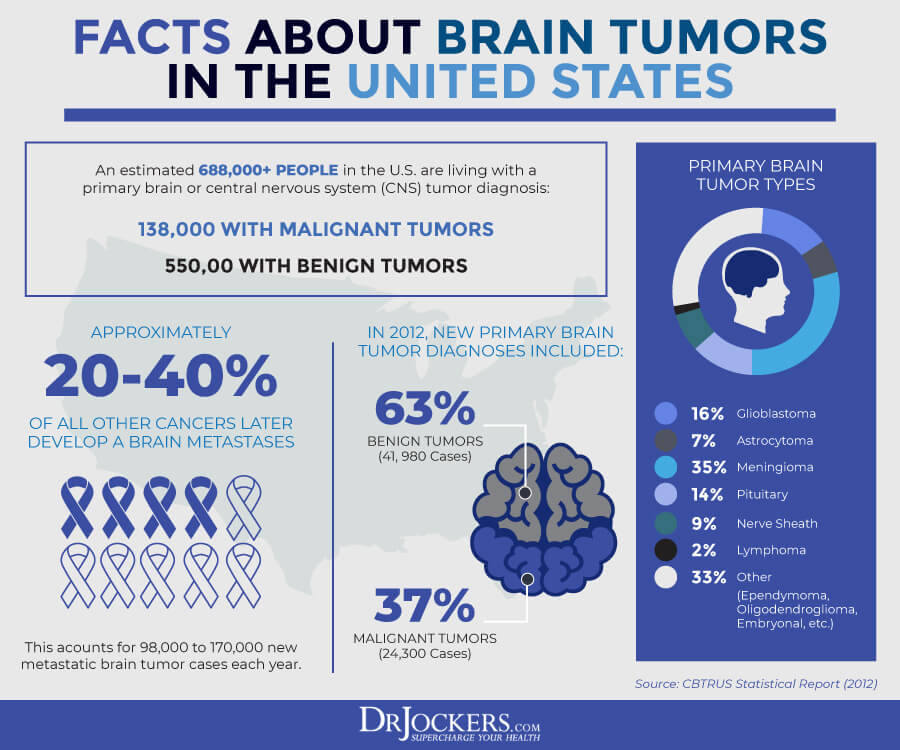
The Powerful Brain
The brain is the center of the human nervous system, controlling our thoughts, movements, memories, and decisions. It contains around 90 billion neurons (nerve cells) that send and receive information around the body.
The adult brain weighs about 3 pounds and is mostly made up of water. In fact, around 75% of the brain is water. The brain is the fattest organ in the body, consisting of at least 60% fat.
Although it makes up just 2% of the body’s weight, the brain uses around 20% of its energy. This makes the brain the most metabolically active organ in the body.
The largest part of the human brain is the cerebrum. Other parts include corpus callosum, cerebral cortex, thalamus, cerebellum, hypothalamus, hippocampus, and brain stem. The brain is protected by the cranium (skull) and suspended in cerebrospinal fluid that acts as a cushion to impact and a barrier to infections.
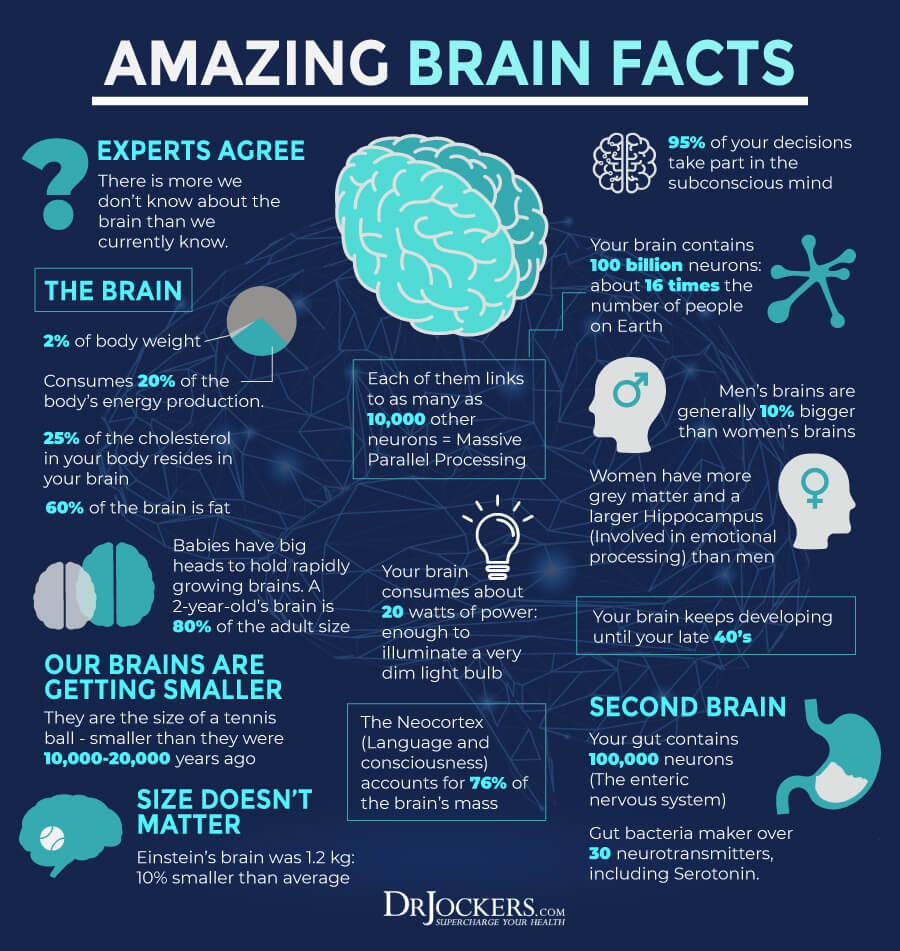
Brain Cancer
A brain tumor is a mass or growth of abnormal cells in the brain. Approximately 700,000 Americans are living with a brain tumor, including around 4,000 children (1).
There are many types of brain tumors. Most brain tumors are named after the part of the brain or type of brain cell from which they arise. Some are benign, or noncancerous, and some are cancerous.
Brain cancers are either primary or metastatic. Primary brain cancers originate in the brain. The most common type of brain tumors are metastatic brain tumors. Metastatic brain cancers are from cancerous cells that spread to the brain from elsewhere in the body. The cancers that most often metastasize to the brain are breast, colorectal, kidney, lung, and melanoma. Nearly 50% of melanoma cases will metastasize to the brain (1).
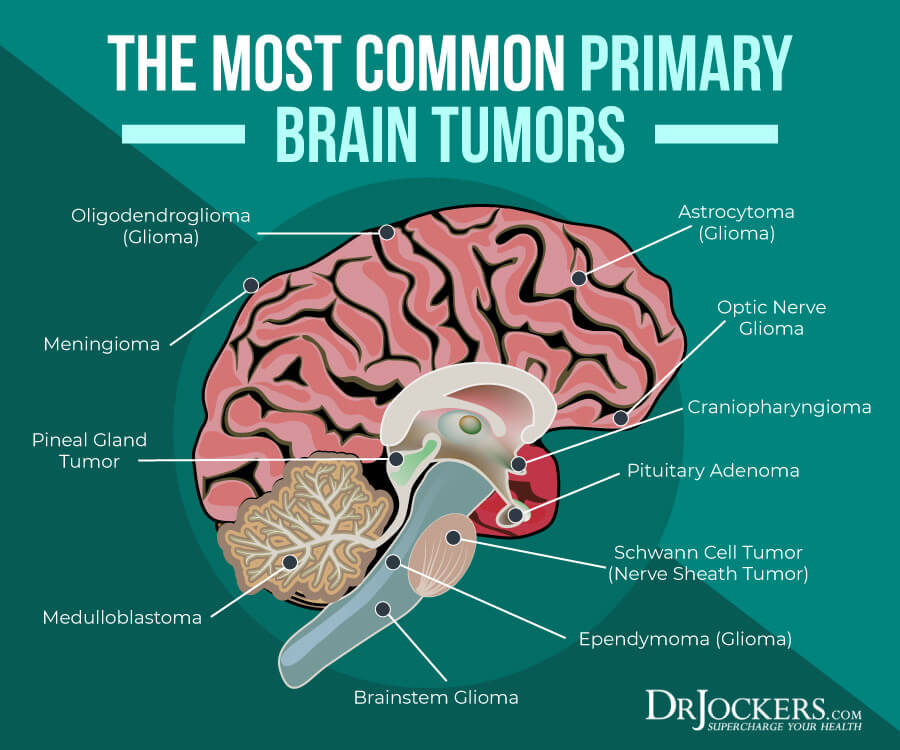
Types of Brain Cancer
Meningiomas and gliomas are the two most common types of primary tumors that occur in the brain or spinal cord. Other common primary brain tumors are pituitary adenomas, vestibular schwannomas, and primitive neuroectodermal tumors.
Meningiomas originate from the meninges, membranes that cover the brain and spinal cord. Most meningiomas (85-90%) are benign. Other examples of benign tumors include acoustic neuromas and most pituitary tumors.
Gliomas begin in glial cells which make up the supportive tissue of the brain. These include glioblastomas, astrocytomas, oligodendrogliomas, and ependymomas.
Astrocytoma is the most common type of glioma tumor. It begins in cells called astrocytes that support nerve cells. Glioblastomas represent about 15% of all primary brain tumors and about 60-75% of all astrocytomas. Glioblastoma is an aggressive type of cancer that can be very difficult to treat.
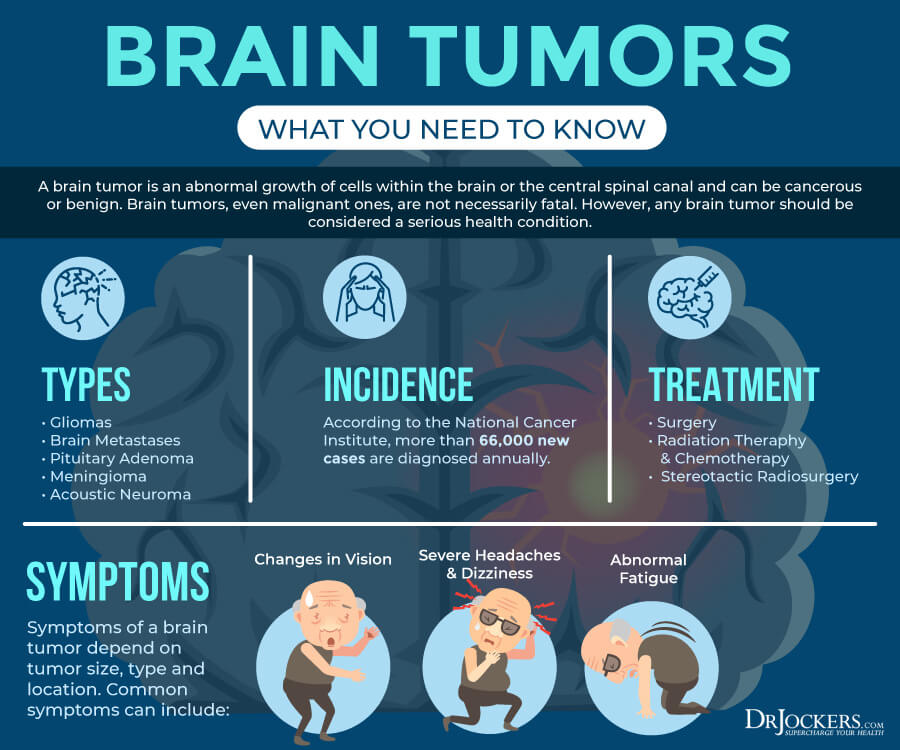
Warning Signs of Brain Cancer
Brain cancer can have a wide array of symptoms, many of which are not specific to brain tumors. Some brain tumors such as pituitary tumors do not cause symptoms. Due to the many functions of our brains, brain tumors can have physical, cognitive, and physiological impacts on a person’s life.
In most people, the onset of symptoms is very gradual. The most common symptoms of brain cancer are:
- Headaches (sudden headaches or changes in headache patterns such as worsening of headache severity)
- Seizures
- Clumsiness
- Dizziness
- Difficulty walking
- Weakness
- Changes in concentration, memory, attention, or alertness
- Nausea and vomiting
- Vision problems (double vision or blurry vision)
- Hearing impairment
- Speech difficulty
- Behavioral changes (personality, intellectual capacity, emotional response)
- Excessive sleepiness or lethargy
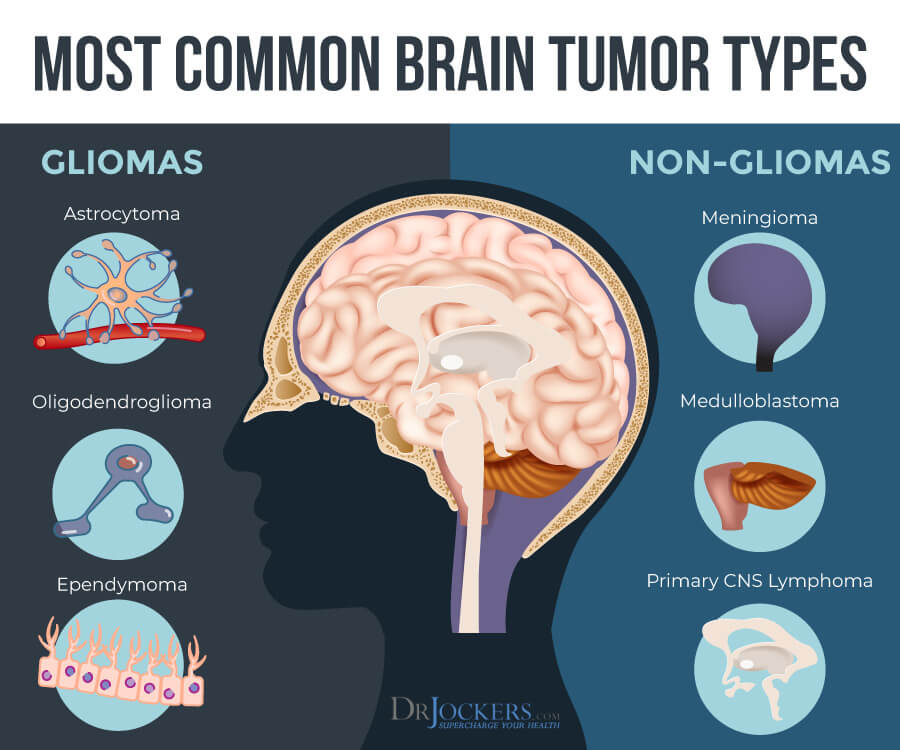
Causes of Brain Cancer
The exact cause of most brain cancer is unknown. Cancer is generally thought of as the result of faulty DNA leading to poorly functioning cells (genetics). Under the genetic theory, DNA mutations are random and cancer “runs in the family”.
While genetics has been linked to brain cancer, it is important to recognize the epigenetic factors. Epigenetics are biological mechanisms that will switch genes on and off. Epigenetic influences, such as diet, lifestyle, and environment, can largely dictate whether these faulty DNA sequences will occur or not.
There are several epigenetic pathways in the body that are associated with cancer growth. Epigenetic factors that have been linked to brain cancers include environmental toxins, radiation to the head (including EMF’s and cell phones), HIV infections, and cigarette smoking.
Increased age is a risk factor for all cancers, including brain cancer. However, there are specific types of brain and spinal tumors that are exclusive to children.
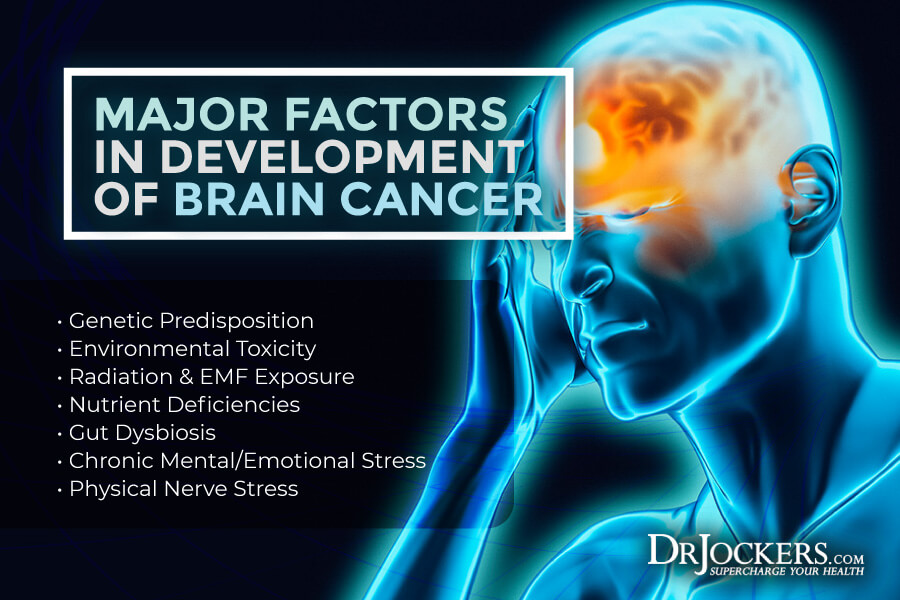
Diagnosing Brain Cancer
An MRI or CT scan is used to diagnose a brain tumor. Once the tumor is located, a biopsy of the tumor is done. In most cases, surgery is performed to open the skull and remove the tumor. The entire tumor is removed if possible (or a small piece if not), and a biopsy is done of the tumor.
In certain cases, a biopsy may be collected without opening the skull. A stereotactic biopsy is done by guiding a needle to the tumor through a small hole in the skull. The needle collects the biopsy and is removed. The biopsy is examined under a microscope to determine whether the tumor is cancerous or malignant.
Conventional Treatments for Brain Cancer
Conventional treatment of brain cancer is usually complex and includes surgery, radiation, chemotherapy, tumor treating fields (TTF) therapy, and targeted drug therapy. The protocol varies depending on the location of the tumor, the size and type of tumor, and the age and general health of the individual.
Unfortunately, conventional treatments may be unsuccessful. Brain tumors are the fifth-leading cause of cancer-related death in males age 40-59 years. The five year overall survival rate for adults over the age of 40 diagnosed with a brain tumor is only 21.3% (1). However for malignant pediatric brain tumors, the average survival rate is almost 75%.
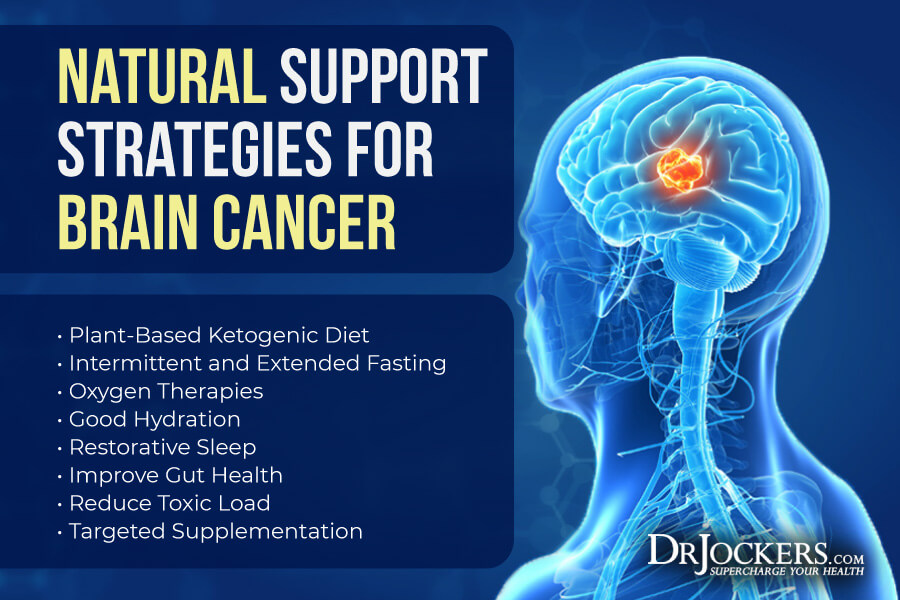
Alternative Healing Strategies for Brain Cancer
There are natural strategies that anyone with brain cancer can implement to help the healing process. It is important to know that these strategies are not FDA approved to prevent, mitigate, treat or cure brain cancer and should not be confused as such. Nevertheless, these strategies can be very helpful for the immune system and overall wellness.
Consuming a clean, plant-based ketogenic diet with phytonutrient-rich fruits and vegetables is important for healing. Other strategies include fasting, oxygen therapies, prioritizing sleep, detoxification, optimal hydration, and targeted supplementation.
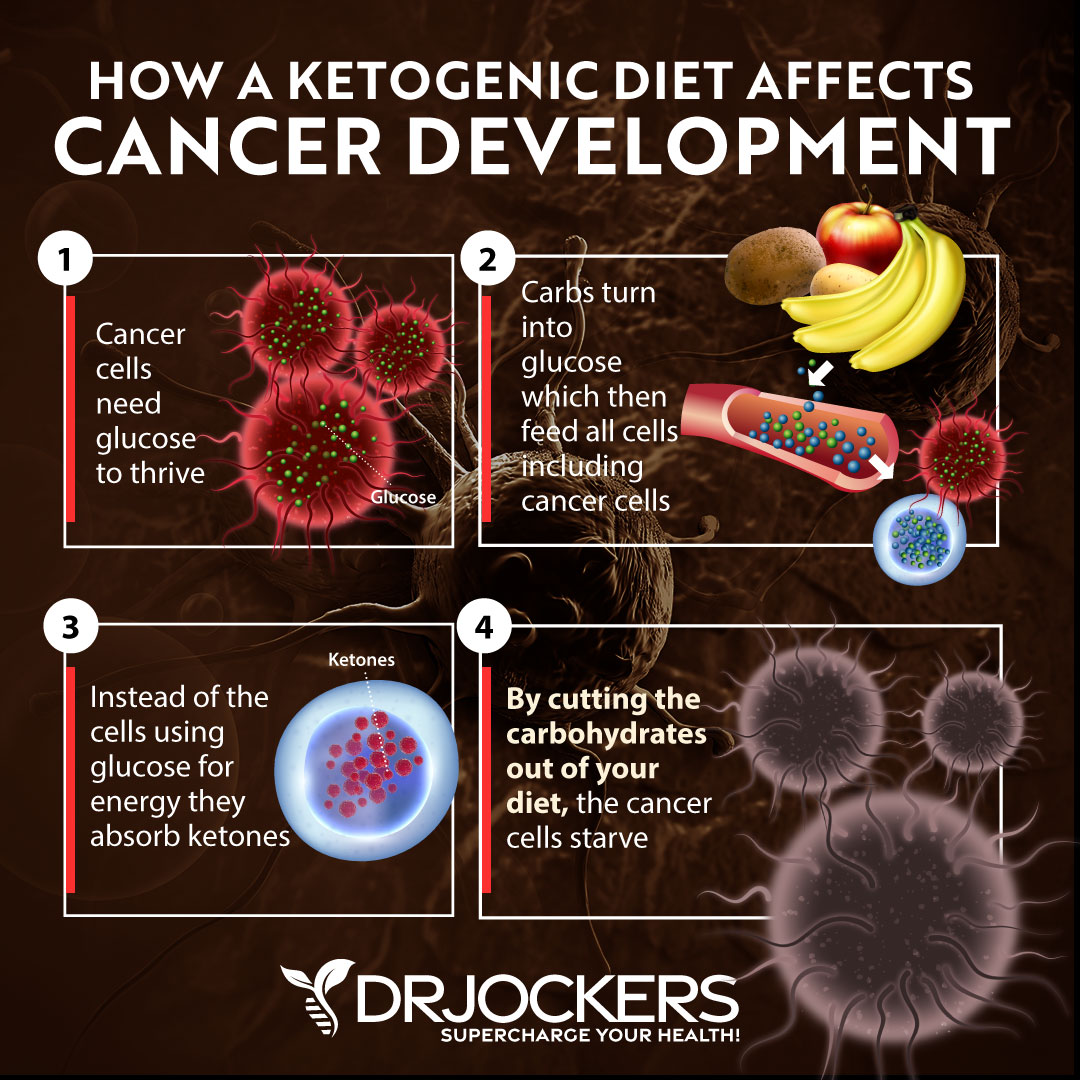
1. Plant-Based Ketogenic Diet
The best nutrition plan for individuals with brain cancer is a clean, plant-based, low protein, ketogenic diet. Following these four important guidelines supports the body’s ability to fight brain cancer.
Ketogenic Diet and Brain Cancer
The ketogenic diet is a nutrition and lifestyle plan that helps your body enter a state of ketosis. When your body is in nutritional ketosis, it utilizes ketones rather than glucose for fuel. This weakens cancer cells which need glucose to thrive. Most tumor cells lack the metabolic flexibility to use ketones as an effective energy source (2).
According to the latest research, cancer is caused by damage to the respiratory function of the mitochondria with a compensatory fermentation. (3). Elevating non-fermentable ketone bodies protects normal cells from energy stress while elevating energy stress in tumor cells. Being in ketosis deprives cancer cells of glucose while protecting and strengthening normal cells which can use ketones for energy (4).
The ketogenic diet has been shown to have anticancer effects by:
- Inhibiting cancer cell glycolysis and proliferation
- Increasing cancer cell oxidative stress
- Being anti-angiogenesis
- Lowering insulin levels
- Reducing inflammation
- Promoting apoptosis (programmed cell death)
- Acting as an inhibitor of histone deacetylases (which reduces the ability of cancer cells to proliferate) (5,6,7).
Recent studies on glioblastoma show the power of ketosis in the fight against brain cancer. Research indicates that ketogenic metabolic therapy (KMT) can reduce glucose availability that drives glioblastoma GBM growth. KMT also elevates ketone bodies that are neuroprotective and non-fermentable (8).
The ketogenic diet can also improve the body’s response to other therapies like hyperbaric oxygen, ozone, and even conventional cancer treatments. For more information on using nutritional ketosis to fight cancer, read this article.
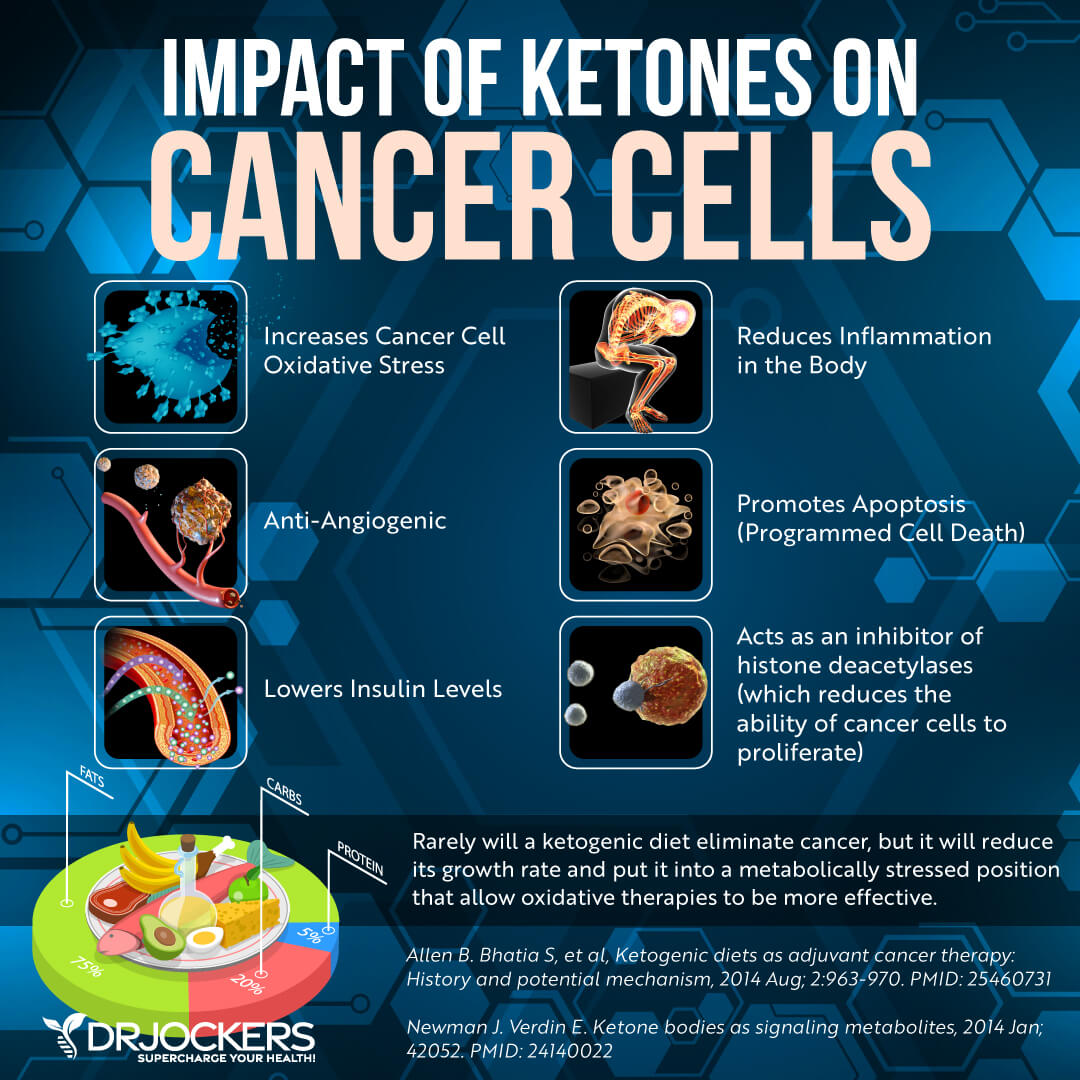
Plant-Based
A plant-based diet can be potent to fight brain cancer because numerous plant compounds have been shown to act on different pathways in the body to downregulate cancer growth. The foundation of your diet should be a variety of lower-carbohydrate, low-glycemic, colorful vegetables, fruits, and herbs.
Vegetables, fruits, and herbs contain abundant antioxidants and phytonutrients that have anti-cancer benefits. They also contain healing nutrients such as vitamins, minerals, and fiber.
Some of the best vegetables to consume when fighting brain cancer are broccoli, cauliflower, Brussels sprouts, cabbage, celery, cucumbers, leafy greens like kale and collard greens, and allium vegetables such as garlic and onions. Sprouts, especially broccoli sprouts, are great to incorporate due to the level of sulfur.
Low-glycemic fruits to include are blueberries, raspberries, strawberries, lemons and limes, avocados, and coconuts. Avocados and coconut contain healthy fats and cancer fighting nutrients.
Herbs and spices like turmeric, cinnamon, rosemary, oregano, basil, cilantro, sage, and thyme should be included. They add taste to your food and have cancer healing properties.
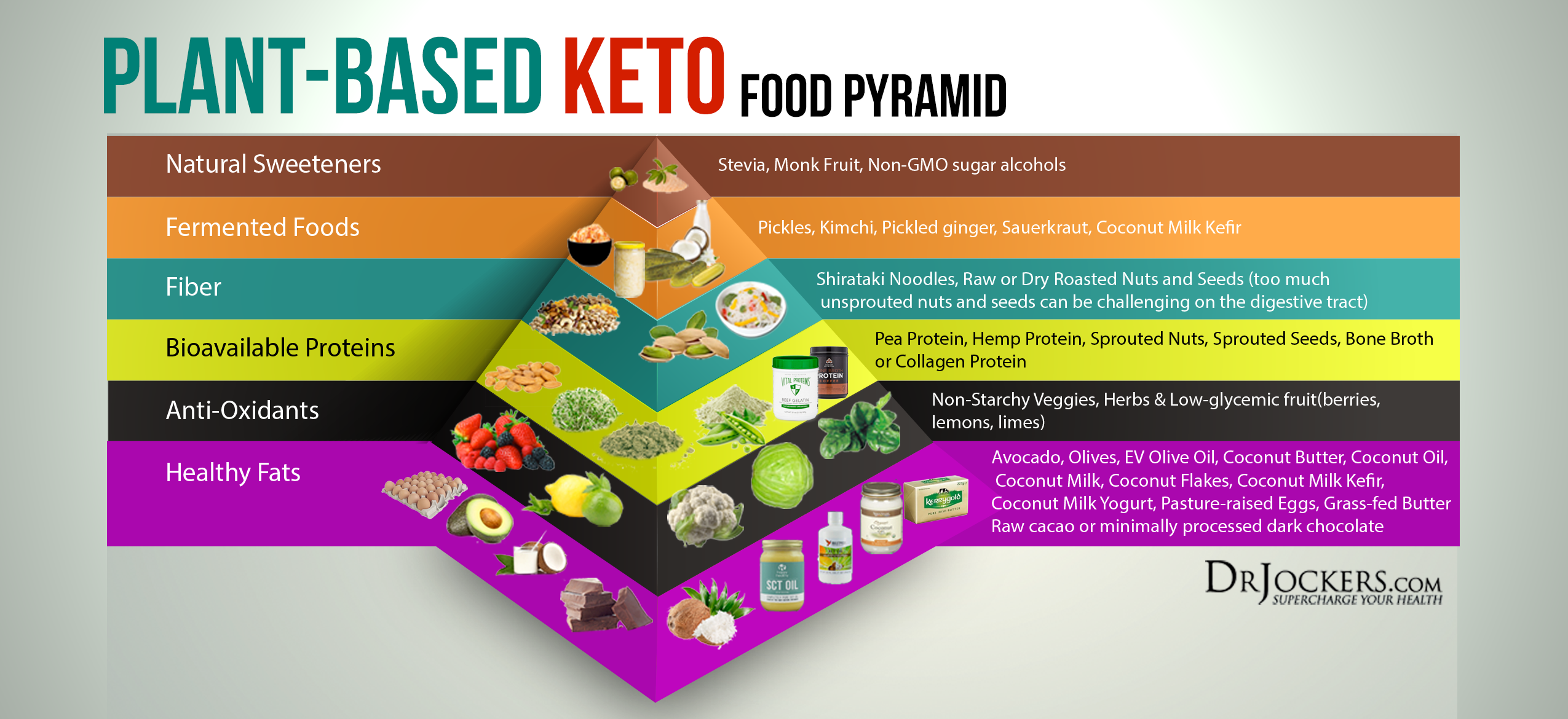
Low Protein and mTOR
An anticancer nutrition plan should be low in protein. A high amount of protein can overstimulate the mTOR (mammalian target of rapamycin) pathway and IGF-1 (insulin-like growth factor) which are often hyperactive and stimulate out of control cell reproduction processes.
mTOR (mammalian target of rapamycin) is a physiological pathway that regulates cell growth and replication. Cancerous tissues have an elevated activation of the mTOR pathway. IGF-1 (insulin-like growth factor) is a growth stimulating hormone that regulates the reproduction and regeneration of cells. elevated IGF-1 can be a catalyst for cancer growth.
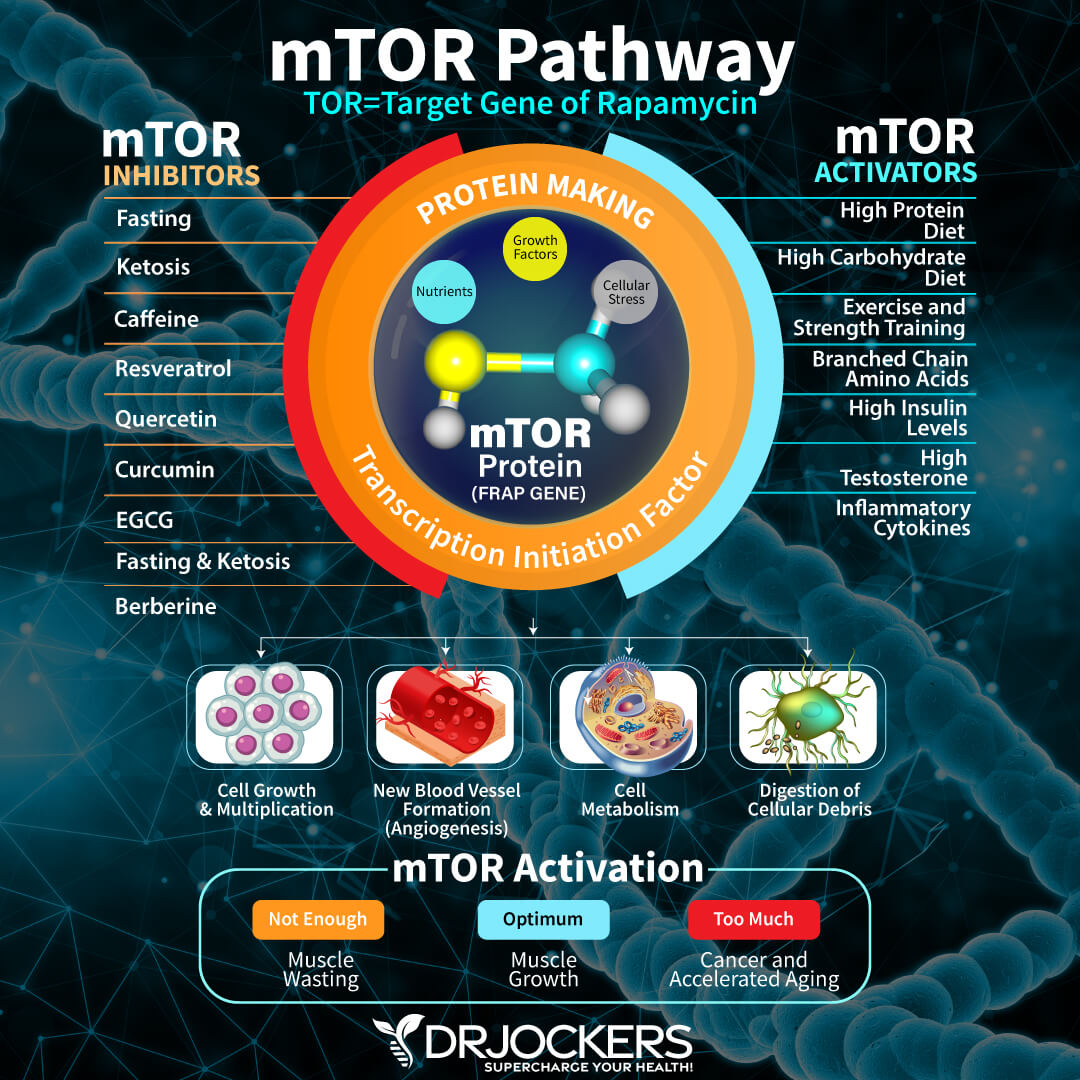
Protein Levels and Cancer
Eating too much protein, especially branched chain amino acids such as leucine, which are found in high amounts in muscle meats and whey protein will stimulate the mTOR pathway. To reduce the mTOR pathway and IGF-1 expression, it is important to consume around 0.5 g of protein per kilogram of body weight.
The best sources of protein on a plant-based ketogenic diet are pasture-raised eggs, a plant-based protein powder or bone broth or collagen protein, and small amounts of organ meats. Collagen protein is the lowest protein source in branched chain amino acids and is rich in the amino acid glycine which helps improve phase II liver detoxification. In this way, collagen peptides, bone broth or bone broth protein can be a good protein source for cancer patients.
When you are consuming a low amount of protein, it is important to hydrate throughout the day, increase fat intake, and increase overall vegetable content for increased fiber. This will help you stay full while consuming lower amounts of protein.
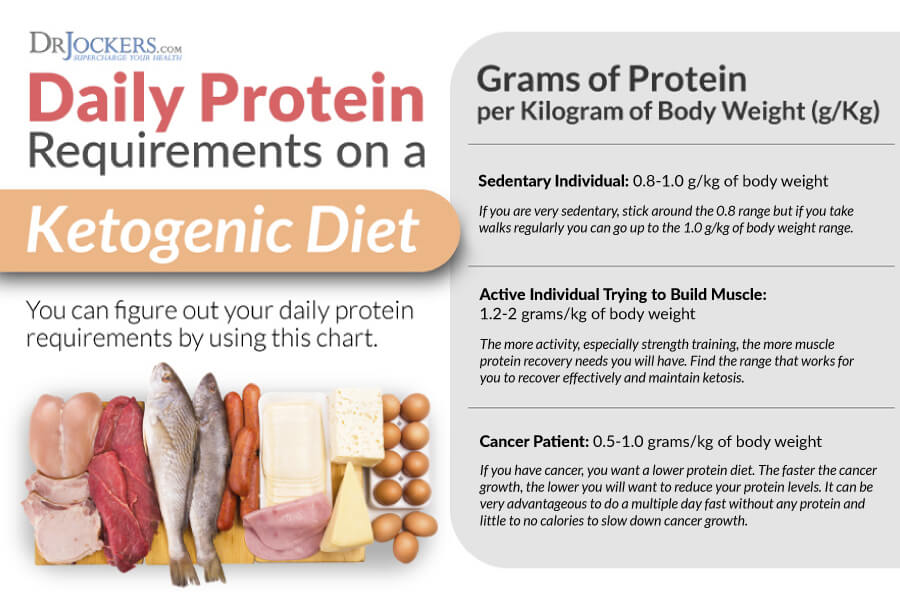
Highest Quality Food Sources
When fighting brain cancer, it is critical to minimize toxins in your food and only consume the highest-quality, organic foods. Around 80% of your calories should come from healthy fats. Healthy fats are found grass-fed butter and ghee, coconuts, coconut butter and oil, MCT oil, pastured eggs, olive oil, olives, avocados, and avocado oil. Small amounts of high fat nuts like macadamia nuts are included in a plant-based ketogenic diet.
Foods that must be avoided include:
- Sugar
- Refined carbohydrates (white flour, white rice, white potatoes)
- Conventionally raised meat and dairy
- Farm-raised fish
- Processed meats
- Processed foods
- Trans fats (partially hydrogenated oils)
- Mono-sodium Glutamate (MSG) and other food additives and preservatives
- Processed vegetable and seed oils, such as canola, corn, sunflower, peanut, grapeseed, cottonseed, and safflower
- Artificial Sweeteners.
These foods drive cancer growth, increase inflammation, and create extra acidity in the tissues.

2. Intermittent and Extended Fasting
Fasting is a fantastic strategy to implement in the fight against brain cancer. While fasting, your body shifts into ketosis and uses ketones rather than sugar for energy. Fasting fights cancer by helping to slow down mTOR and IGF-1 expression, improve AMP-K expression, stabilize the p53 gene, and increase autophagy.
AMPK (Adenosine Monophosphate-activated Protein Kinase) is an energy regulating molecule that signals ATP production. Upregulation of the AMPK pathway can help the body fight cancer. The p53 gene regulates what happens to damaged DNA sequences before they lead to problems in cell development. This critical gene is inactive in many cancers.
A great way to quickly get into ketosis is with a 5-day water fast. A water fast can help you reach an optimal Glucose Ketone Index for fighting cancer. For guidelines on how to do a 5-day water fast and what to expect, read this article.
Daily intermittent fasting, or time-restricted eating, may also be helpful. With intermittent fasting, the eating window should be around 6-8 hours. You can start with a shorter fasting period and work your way up to longer periods.
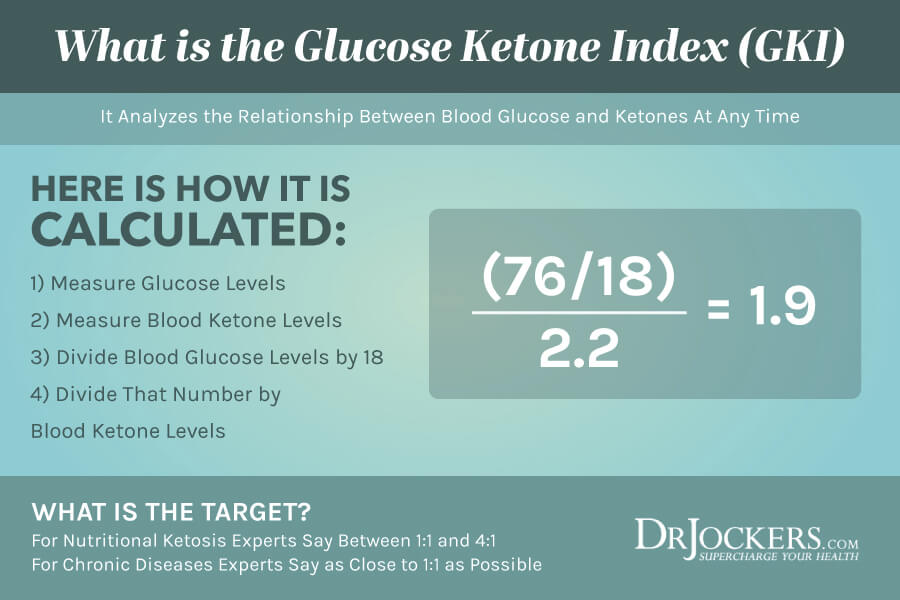
3. Oxygen Therapies
The brain uses 20% of the total oxygen in your body. Having enough oxygen in the brain is crucial to brain function. When the brain does not receive the amount of oxygen it needs, cerebral (or brain) hypoxia can occur.
Inside brain tumors, oxygen transport is seriously hindered, and local hypoxic regions develop. This plays a major role in tumor development and resistance to chemotherapy and radiation treatments.
Exercise and deep breathing exercises are great ways to increase oxygen in the body. Additional oxygen therapies include hyperbaric oxygen therapy, ozone therapies, and biomolecular oxygen.
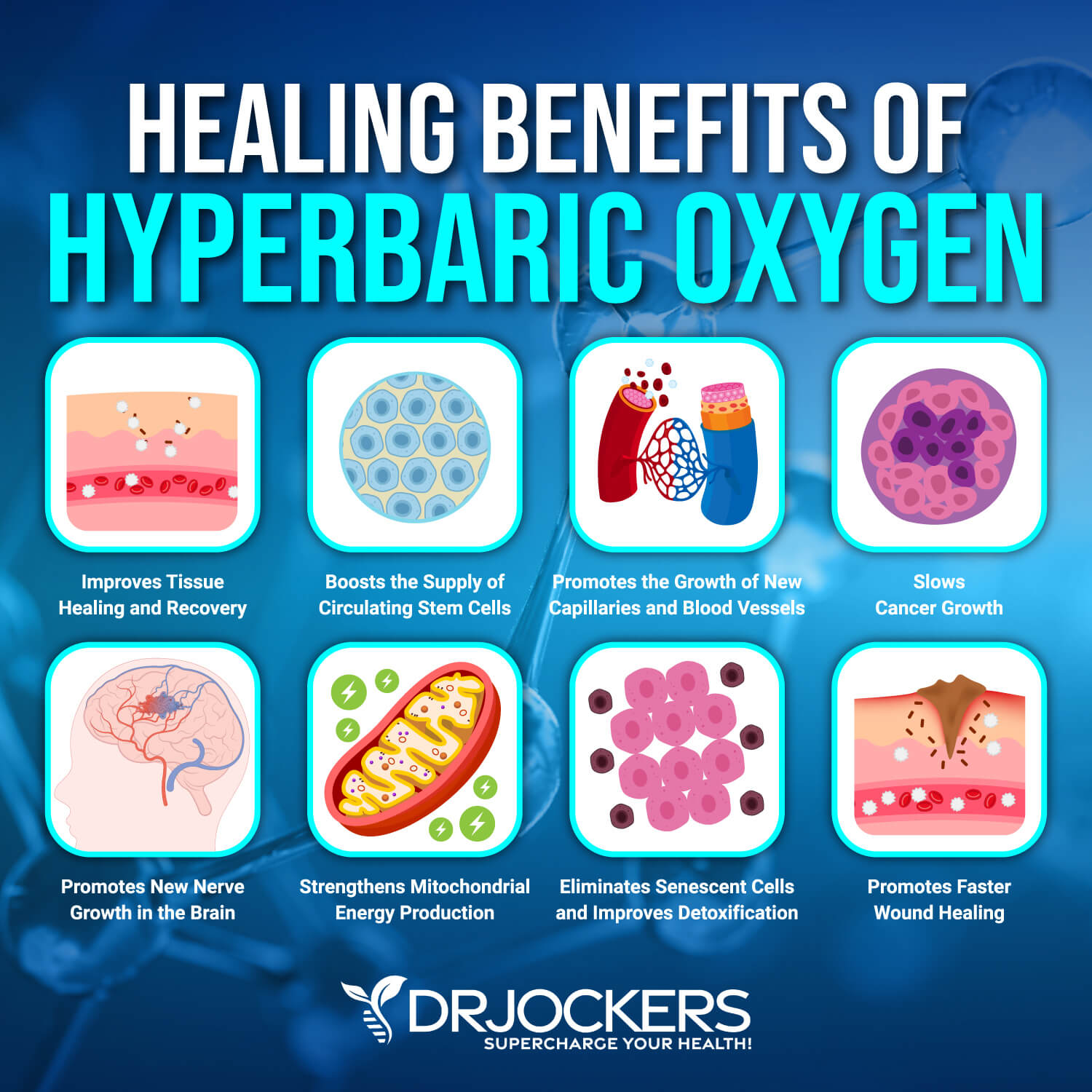
Oxygen Therapy and Brain Cancer
Hyperbaric oxygen therapy is the use of oxygen under elevated atmospheric pressure. It is widely used as an adjunctive treatment to transport oxygen through the tissues. HBOT has a positive impact on the oxygenation of brain tissue, both in the normal brain as well as in glioblastoma tissue.
Research shows that administering HBOT can provide many clinical benefits in the treatment of tumors, including management of highly malignant gliomas (9). Additionally, when combined with radiation or chemotherapy, HBOT may make these treatments more effective.
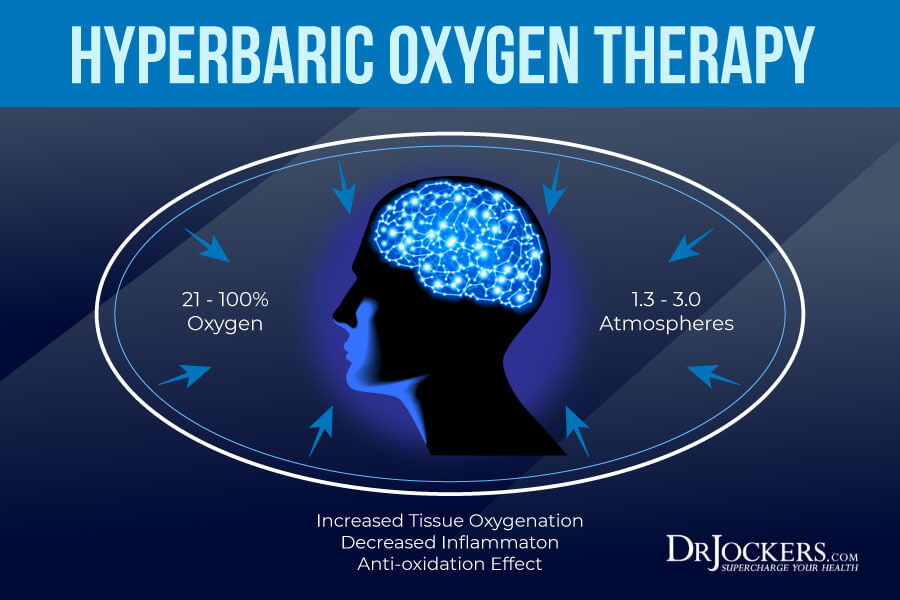
4. Good Hydration
About 75% of the brain is made up of water. This means that dehydration, even in small amounts, can negatively affect brain function. Water supports many functions of the body by improving oxygen delivery to cells, transporting nutrients, flushing toxins, and supporting the body’s natural healing processes.
To be well hydrated, you should consume at least one half and up to your full body weight in ounces of water every day. For example, a 130-pound individual should consume a minimum of 65 ounces and up to 130 ounces of water per day.
For anyone with brain cancer, filtering chlorine, fluoride, heavy metals, and pharmaceutical drugs from your water with a high-quality filter is critical.

5. Prioritize Restorative Sleep
Restorative sleep is critical for optimal brain function and fighting brain cancer. Sleep reduces inflammation and restores the brain by flushing out toxins through the glymphatic system (10).
A lack of sleep dramatically impacts the brain’s ability to flush out toxins. Sleep deprivation impairs cognitive function, causes blood sugar imbalances, increases inflammation, and increases cortisol secretion. These factors are very harmful for anyone with cancer.
For optimal sleep, it is important to: 1) be in bed no later than 11 p.m.; 2) blackout your room with blackout curtains or a sleep mask; 3) keep the temperature between 60-65 degrees; 4) get sunlight in the morning to prime the circadian rhythm; 5) avoid blue light exposure 4 hours before bed (with blue light blocking glasses or turn off the devices); and, 6) use caffeine early in the day in small quantities and cycle on and off caffeine. It is also very important to reduce stress.
An important micronutrient that plays a critical role in stress and sleep is magnesium. Magnesium helps to balance blood sugar and relieves physical tension, both of which are related to stress and impaired sleep.
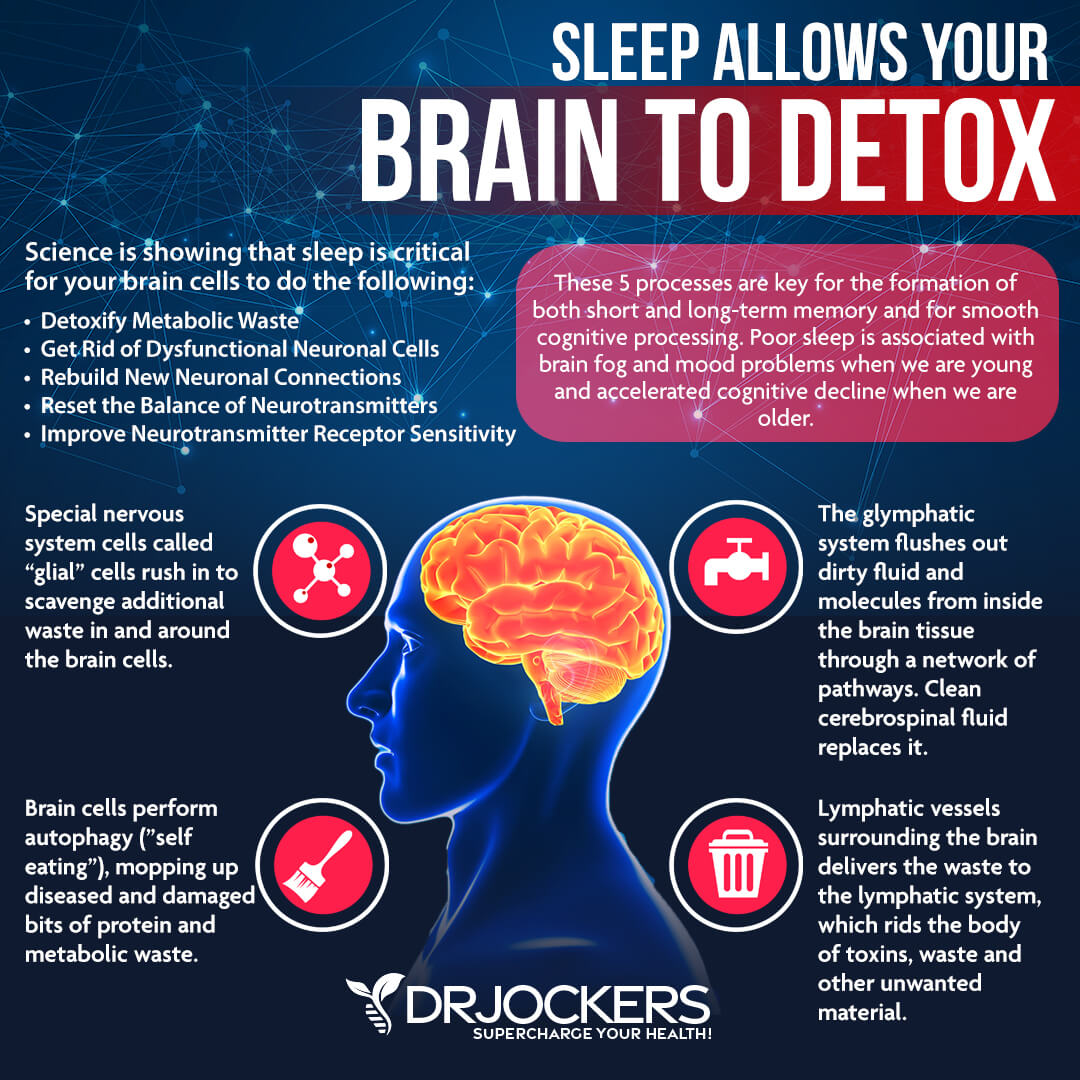
6. Improve Gut Health and Address Infections
The gut is considered the second brain due to the amount of nerve endings and neurotransmitters that are linked to gut function. When the gut lining is inflamed and damaged, large proteins enter the bloodstream. This creates inflammation in all tissues, including the brain. It is important to work on improving gut health while fighting brain cancer.
Good bacteria in the gut influences gut health and the brain. Supplementing with a high-quality probiotic with 30-100 billion CFUs is a great way to protect and heal the gut. Another way to improve gut health is to address any gut infections. Gut infections result from a variety of pathogens and can wreak havoc on your health.
To test for overall gut health and possible gut infections, the GI-MAP™ Stool Analysis Test is the most thorough stool test on the market. It is the only FDA-approved DNA test for gastrointestinal microbes and pathogens available. This comprehensive test reveals the integrity of your gastrointestinal system with digestion, immune response, and gliadin, and inflammation markers.
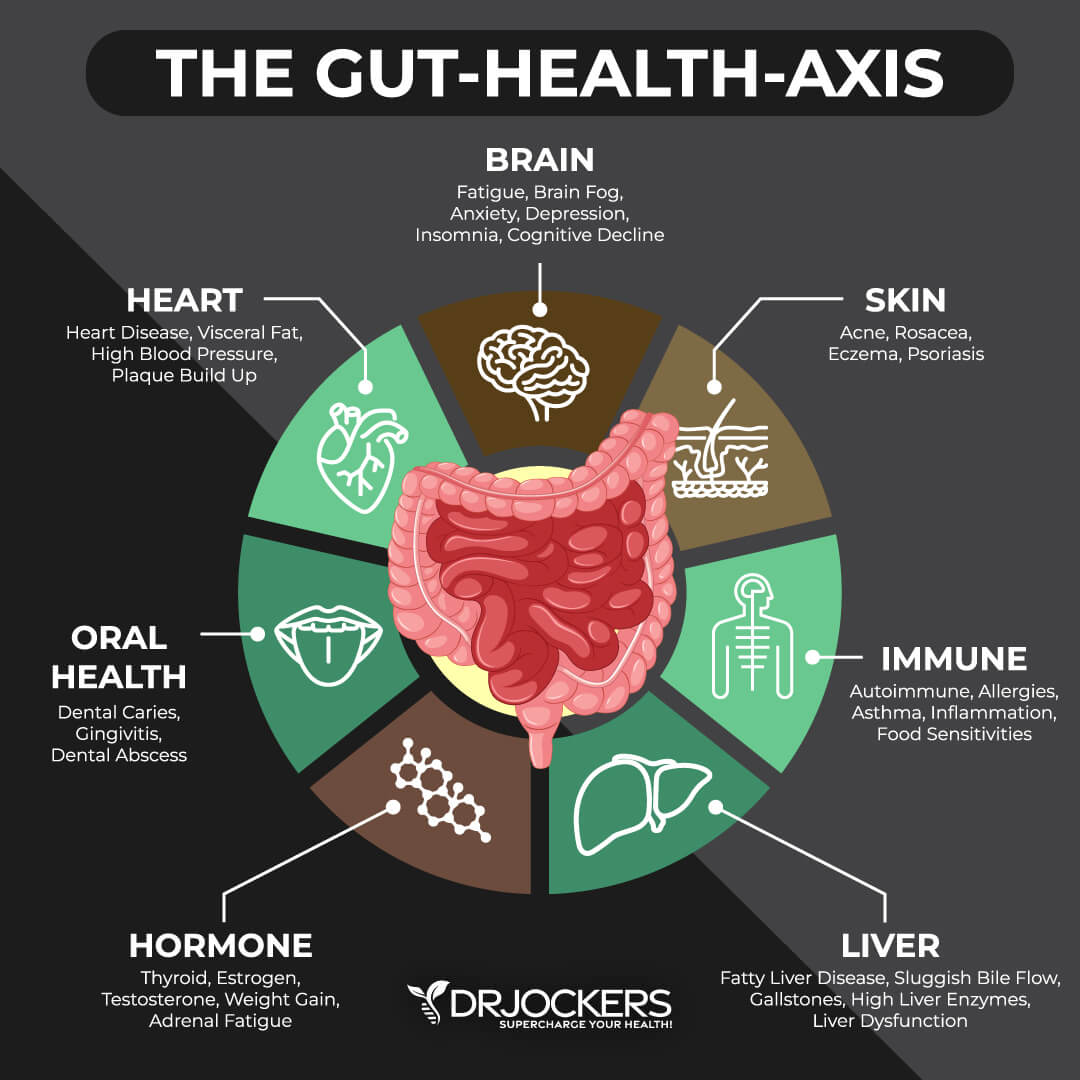
7. Reduce Toxic Load
In addition to reducing the toxins from food, you should also reduce environmental toxins. This includes personal care products, cleaning supplies, air, water, and more. Since it is impossible to eliminate all exposure to toxins, practicing daily detoxification strategies is important.
Detoxifying your body may help to prevent disease, facilitate your recovery from cancer, prevent recurrences of disease, and lead to a long and healthy life. There are many organs of detoxification, including the liver and gallbladder, skin, lymphatic system, lungs, and kidneys. It is important to support all of these detoxification organs to eliminate toxins and improve your health.
Juicing, coffee enemas, sauna, lymphatic cleansing, physical exercise, breathing exercises, heavy metal detoxification, and regular bowel movements are all pathways to eliminate toxins. It is also important to improve your dental health by removing amalgams and infected root canals and treating cavitations and periodontal disease. Bacteria in root canals and cavitations produce toxins that put stress on the immune system.
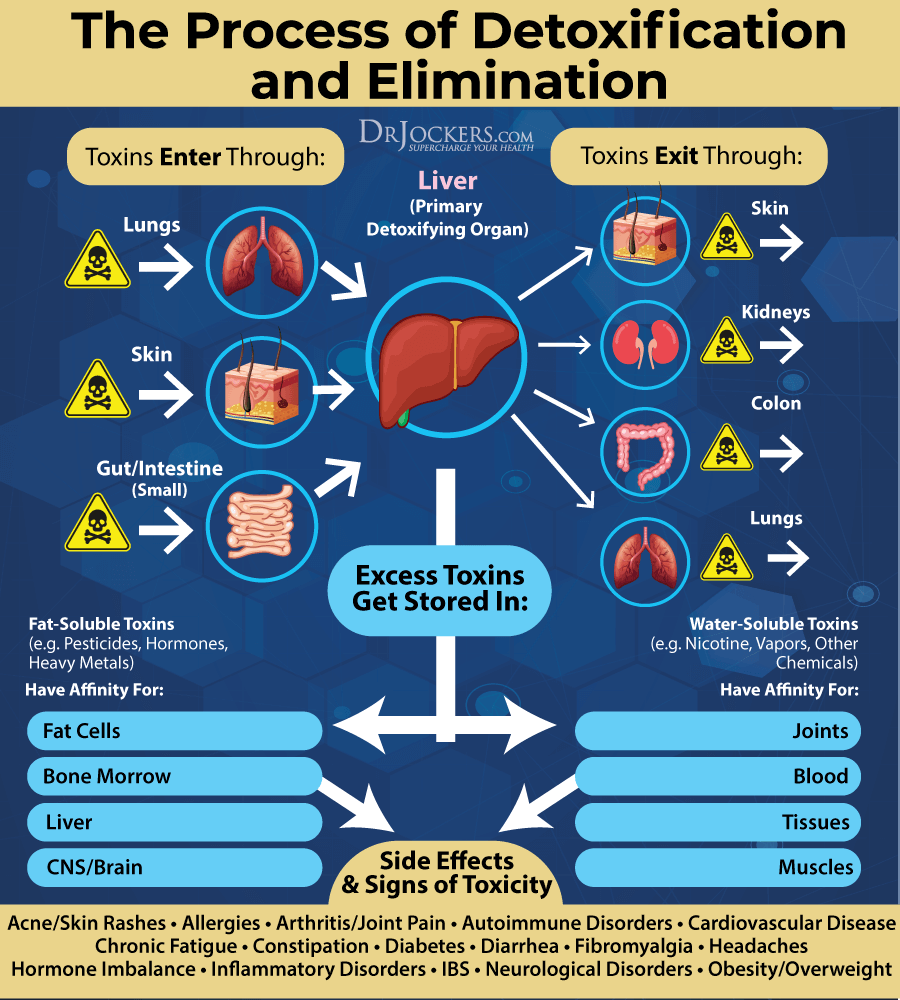
8. Targeted Supplementation
Using targeted supplementation helps to support the brain and body when fighting brain cancer. Certain nutrients have been shown in studies to have powerful, cancer-fighting properties. Remember, these are not FDA approved to prevent, mitigate, treat or cure brain cancer.
Nrf2 Supportive Herbs
Nrf2 (NF-E2-related factor 2) is a transcription factor in humans encoded by a specific gene that regulates the expression of a set of antioxidant and detoxifying genes. This pathway is activated under times of oxidative stress to enhance the expression of a multitude of antioxidant and phase II liver detoxification enzymes that restore homeostasis to the ox/redox cycles in the body (31, 32, 33).
Oxidative stress is a major player in the formation of cancer. Adding in clinical dosages of resveratrol, curcumin, quercetin, sulfuraphane and Green tea (EGCG) can be extraordinarily beneficial for driving up the Nrf2 Pathway and reducing oxidative stress.
Green tea is a powerful antioxidant that upregulates AMPK activity, inhibits IGF-1 and the mTOR pathway, and protects the p53 gene. Through these mechanisms, green tea has been shown to inhibit cancer cell growth and promote cancer cell apoptosis. Green tea also helps to promote the production of the antioxidants glutathione and superoxide dismutase (SOD). These antioxidants drastically lower inflammation in the body.
Curcumin has powerful antioxidant and anti-inflammatory properties which may help prevent the development of cancer. It has also been shown to prevent the spread of tumors and support apoptosis (cell death). Curcumin can target cancer stem cells to aid in preventing the recurrence of cancer.
Sulforaphane is the powerful isothiocyanate that reduces cancer cell replication and boosts the immune system. Resveratrol is a natural polyphenol produced by red grapes. It has multiple beneficial properties including cardio and neuroprotective properties (11). It is a strong antioxidant and free radical scavenger with anti-inflammatory and anti-tumoral effects. It has antitumor activity on several cancers and on organ-specific and systemic autoimmune conditions.
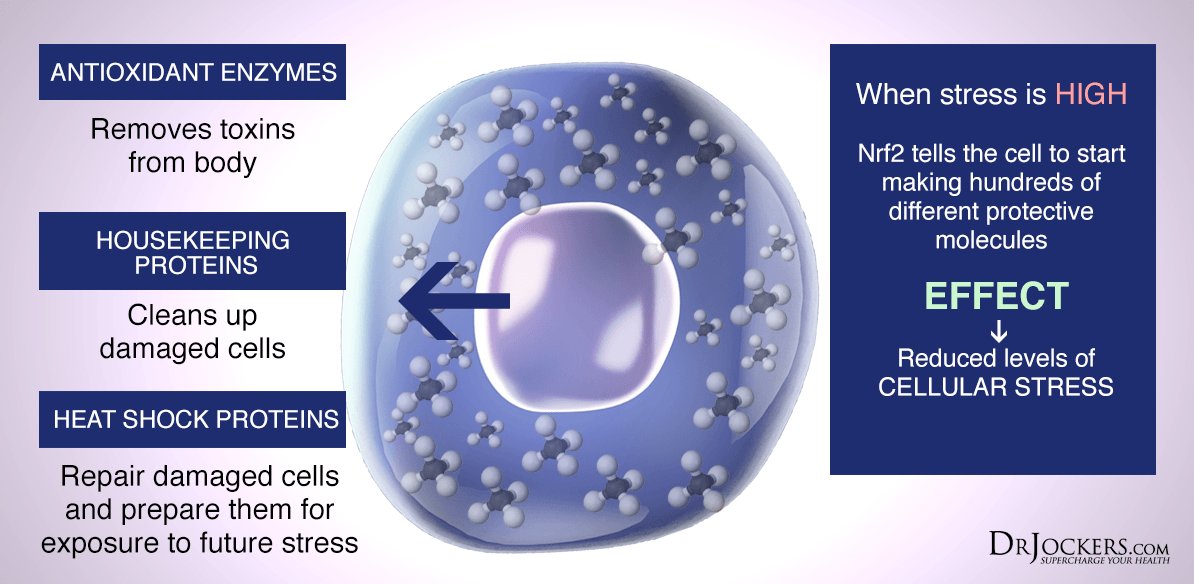
Brain Health Nutrients
Many nutrients can be beneficial for brain health. Acetyl-L-Carnitine (ALC) is a type of carnitine produced naturally in the brain. ALC is a powerful antioxidant that is able to permeate the blood-brain barrier and stimulate and fortify the brain’s nerve cells.
It can also aid in directing fatty acids to the mitochondria, the powerhouse of the cells. This helps create new cell energy.
N-Acetyl-L-Cysteine (NAC) is an amino acid that boosts glutathione, the body’s master antioxidant. By boosting glutathione, NAC protects the brain from damaging free radicals. You can also find nutrients such as alpha lipoic acid, liposomal glutathione or acetylated glutathione to support brain glutathione levels.
Phosphatidylserine (PS) is a class of phospholipids found in cell membranes. PS is critical because it helps the brain use fuel more efficiently. PS boosts neuronal metabolism and stimulates the production of acetylcholine.
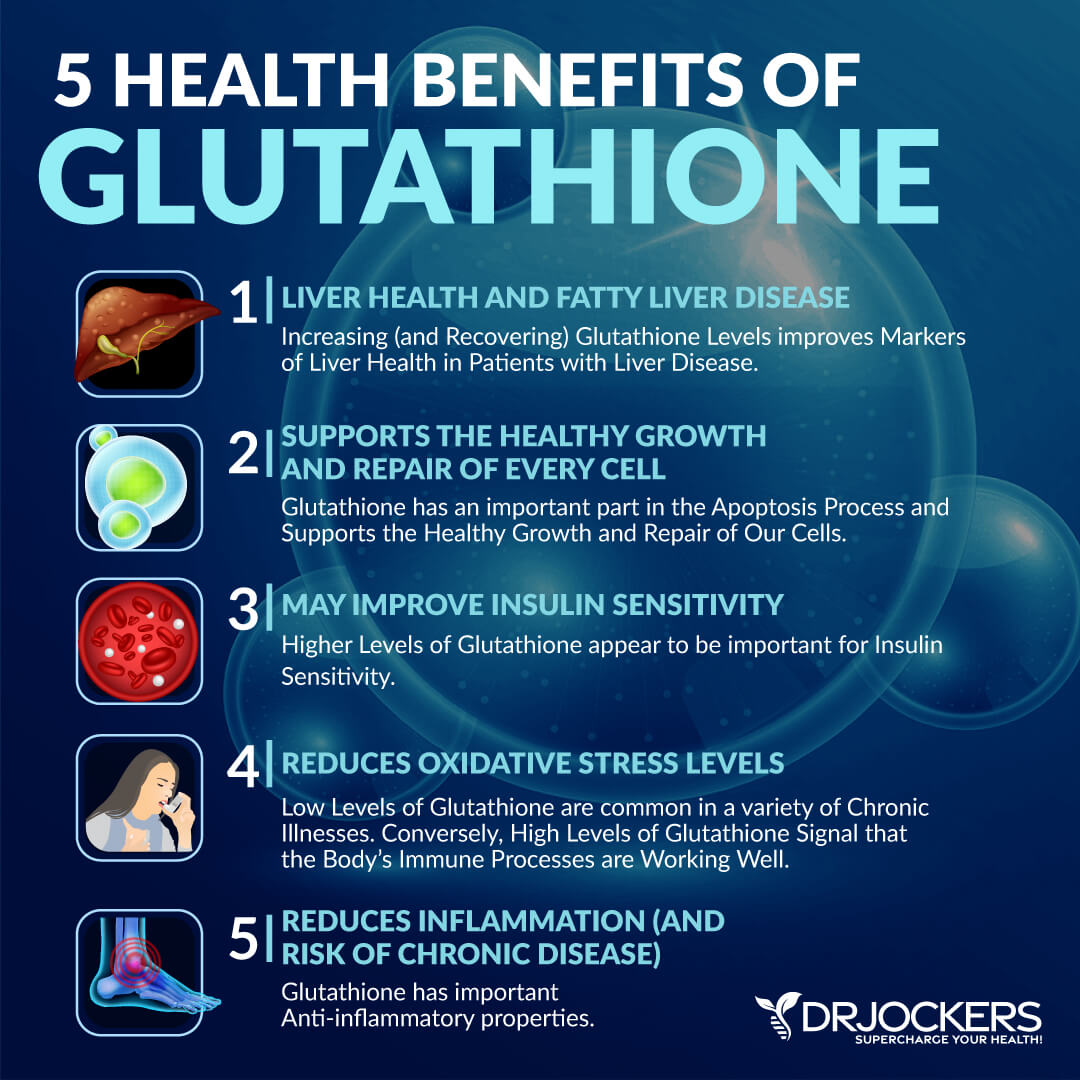
MCT Oil
Medium chain triglycerides (MCTs) are easily converted into ketones to improve your state of ketosis. MCT oil provides fast energy, supports cognitive function, improves gut health, provides immune protection, and improves nutrient absorption.
By quickly producing ketones, MCT oil can activate brain derived neurotrophic factors (BDNF). BDNF works to repair, protect, and enhance the function of brain cells and neurological networks, and to stimulate the growth of new healthy neurons (12).
I recommend finding a pure and ketogenic C8 (caprylic and triglyceride) formulation. C8 MCT oil turns into ketones that fastest and has the greatest impact on brain health.
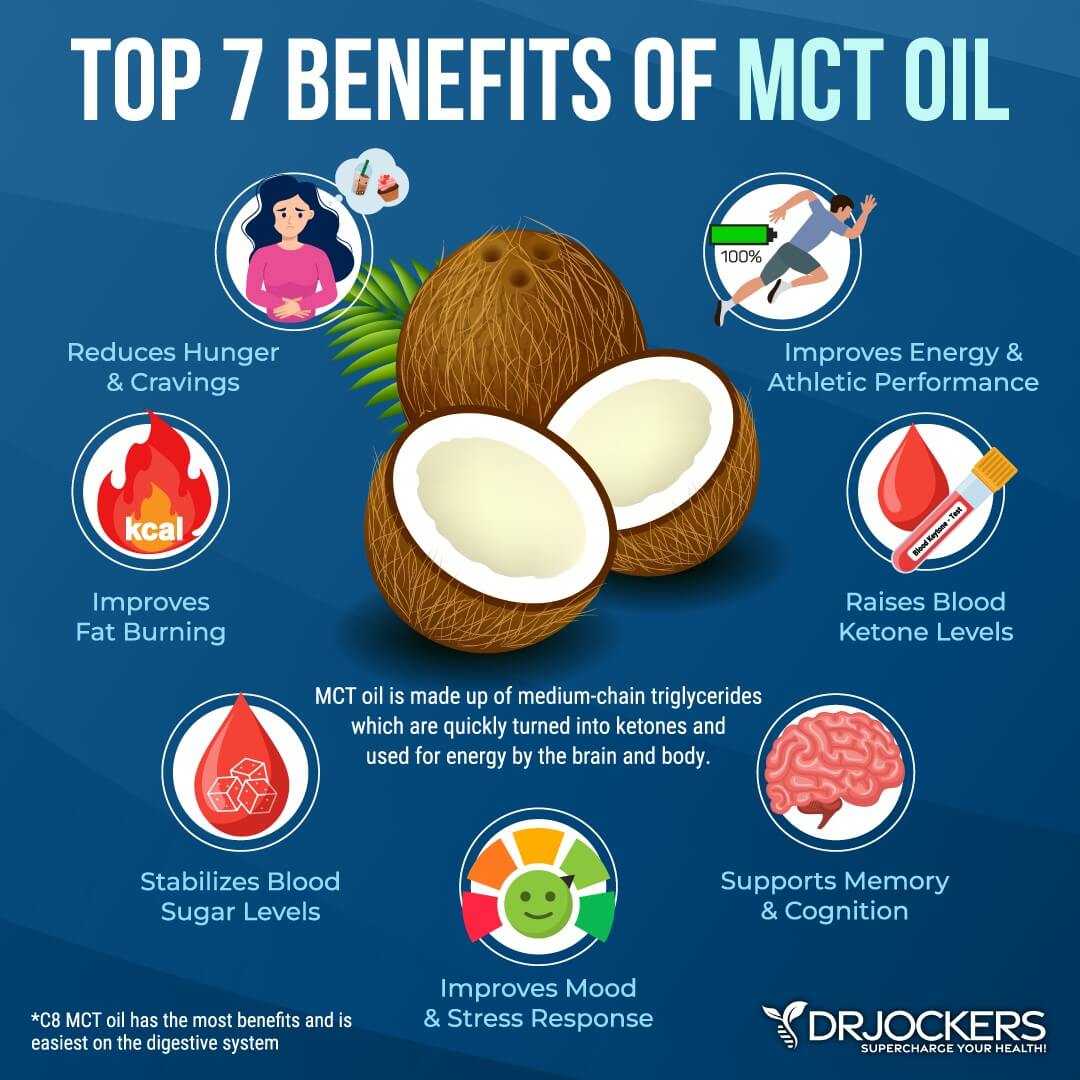
Final Thoughts on Brain Cancer
In the US, brain or nervous system tumors affect significant numbers of people and can cause debilitating symptoms. Around 30% of brain tumors are cancerous, or malignant. Malignant brain tumors destructively grow and spread overpowering healthy cells.
Conventional treatments for brain cancer are harsh and largely unsuccessful. Fortunately, there are many natural support strategies that you can include in your brain cancer-fighting protocol.
One of the most important natural strategies is a clean, plant-based ketogenic diet. Being in a state of ketosis is anti-inflammatory and anti-angiogenic. It keeps healthy cells healthy, inhibits cellular proliferation, increases apoptosis while enhancing the benefits of therapies. Other strategies include fasting, oxygen therapies, detoxification, prioritizing sleep, good hydration, and targeted supplementation.
If you want to work with a functional health coach, I recommend this article with tips on how to find a great coach. On our website, we offer long-distance functional health coaching programs. For further support with your health goals, just reach out—our fantastic coaches are here to support your journey.
Inflammation Crushing Ebundle
The Inflammation Crushing Ebundle is designed to help you improve your brain, liver, immune system and discover the healing strategies, foods and recipes to burn fat, reduce inflammation and thrive in life!
As a doctor of natural medicine, I have spent the past 20 years studying the best healing strategies and worked with hundreds of coaching clients, helping them overcome chronic health conditions and optimize their overall health.
In our Inflammation Crushing Ebundle, I have put together my very best strategies to reduce inflammation and optimize your healing potential. Take a look at what you will get inside these valuable guides below!




Dear Dr Jockers and Melissa,
I just finished reading Dr. Thomas Seyfried’s book “Cancer as a Metabolic Disease”. You have done an excellent job giving a synopsis of his book. I also follow both Drs D’Agostino and Dr. Nasha Winter’s research/clinical experiences with the ketogenic diet. This fairly simple approach has the potential to positively impact many many lives. I have a coworker whose 1 yr old was just diagnosed with a malignant brain tumor. I have told them all about the research on ketogenic diets and brain cancer. Now I will forward your article to them.
Thanks for getting this info out!!
Yes great books to read! Thanks for your support Carlee and we are praying for your coworkers child and family! Blessings!
Respectable Dr.David Jockers Assalamo Alaikum
I think you will be happy
Kindly confirm loose motions can detoxify different organs of our body like brain, liver ,overy, lungs,heart, kidney, intestines,stomach and blood as a whole from toxins, pathogens, virus ,pesticides, parasites, bacteria, foreign invaders and other harmful substances causing different type of above organs cancer.
With best wishes and millions of love / prays for your long lives and prosperity for such dedicated job done for cancer research and cancer patients. May Allah bless upon you and your family
Yours sincerely
Muhammad Nasir
PAKISTAN
Cell phone number 03315002734
Yes it is important to detoxify the body to prevent and heal cancer. Blessings!